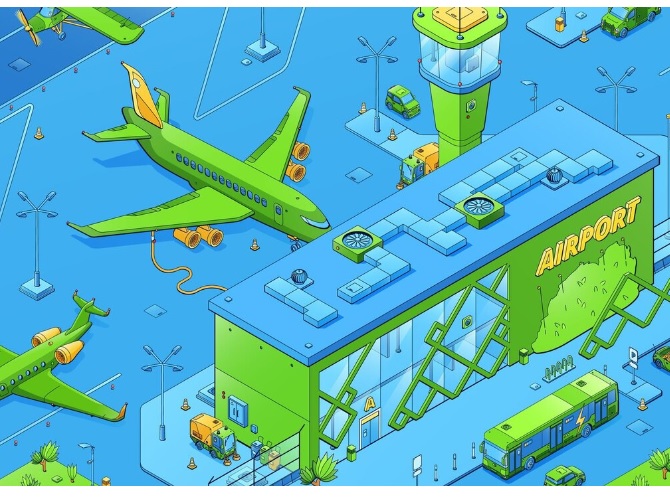The Department of Transportation (DOTr) of the Philippines and aircraft manufacturer Airbus have initiated a feasibility study aimed at developing the country’s sustainable aviation fuel (SAF) ecosystem. This initiative was announced on October 3 during the 2024 Aviation Summit, according to the news report by Portcalls.
The study will involve a comprehensive analysis of macroeconomic data specific to the Philippines, evaluation of SAF feedstocks and production pathways, and assessment of implementation support, financing, and relevant policies. An action plan will also be developed as part of the process.
SAF is a sustainable alternative to traditional fossil fuel-based aviation fuel, offering an average carbon dioxide emissions reduction of 80% compared to conventional jet fuel.
“We commend the proactive support of Airbus, which is playing a significant role in completing the SAF Philippines feasibility study by examining various feedstocks,” said Roberto Lim, DOTr undersecretary for airports and aviation, during his speech at the summit.
As per the media report, given that the Philippines is among the nations most vulnerable to the impacts of climate change, Lim emphasized the urgency of enhancing efforts to mitigate these effects, particularly as the aviation sector targets net zero carbon emissions by 2050.
The feasibility study will adhere to the International Civil Aviation Organization (ICAO) framework for SAF studies, as outlined in the Assistance, Capacity-building and Training for Sustainable Aviation Fuels template, according to a statement from DOTr.
This initiative follows the formation of a SAF Committee under the Department of Energy-led National Biofuels Board (NBB), which is tasked with overseeing the development of the country’s SAF roadmap. The DOTr is a participant in this board, the media report further added.
Lim highlighted that Republic Act No. 9367, known as the Biofuels Act of 2006, promotes the use of biofuels, including SAF, for aviation.
“Southeast Asia has the potential to become a major producer of SAF, and the Philippines is positioned at the heart of this opportunity,” Lim stated. “We have the necessary feedstock available, and with the right technology, we can effectively manage the economics of SAF.”
Report further states that in addition to the SAF initiative, Lim noted other strategies to achieve net zero carbon emissions, such as fleet renewal, disruptive technologies, operational improvements, and carbon offsetting.
He also mentioned efforts in carbon sequestration to generate CORSIA-eligible carbon credits, especially for airlines that must reduce emissions starting in 2027.
CORSIA, or the Carbon Offsetting and Reduction Scheme for International Aviation, provides a standardized approach to reducing emissions from international aviation and permits the use of SAF derived from biomass or waste to lessen airlines’ carbon offsetting obligations.
According to CORSIA’s timeline, participating ICAO member states, including the Philippines, are expected to comply with carbon dioxide offsetting requirements between 2024 and 2026, with mandatory compliance set for 2027 to 2035.
Read also: Air France-KLM signs deal with French energy supplier TotalEnergies for supply of 1.5 million tons of sustainable aviation fuel





